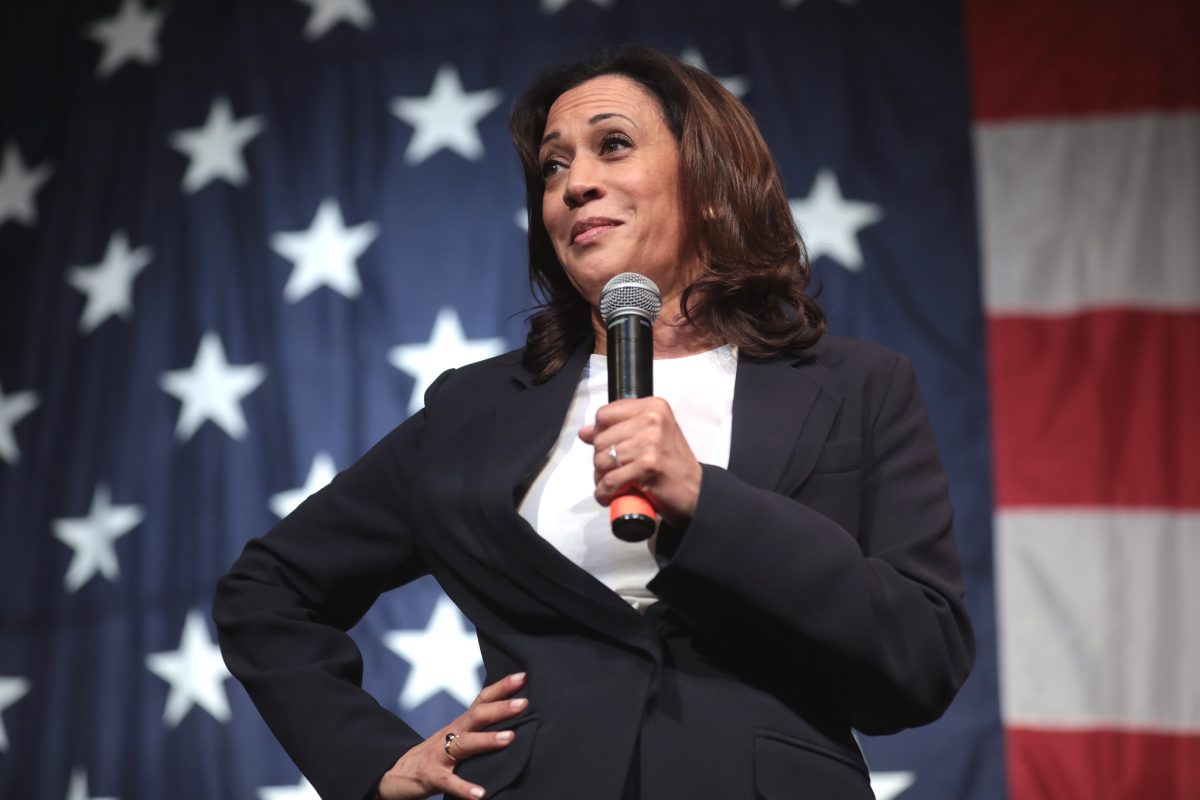The great Russian revolutionary Vladimir Ilyich Lenin is often credited with saying, “There are decades where nothing happens; and there are weeks where decades happen.”
There’s no solid evidence he ever actually said this. Nevertheless, the quote perfectly captures the surreal whirlwind that is the 2024 Presidential Election, which is shaping up to be one of the most unprecedented, historic and chaotic election cycles in modern history.
After weathering the 2020 election and voting against Trump more than for Biden, the last leg of the 2024 election cycle might have just the right amount of chaos to get Democrats enthusiastic again.
Just over two months ago, we had our first presidential debate—the earliest in an election year—where President Biden’s verbal stumbles and hoarse voice reinforced the narrative pushed by his political opponents that he is too old for the job.
Biden’s performance in polls continued to flag, leading to many prominent Democratic lawmakers and donors to sound the alarm. Two-thirds of his voter base thought he should step down, and many feared we were locked in a death march as the Biden campaign refused to entertain the idea.
Two weeks later, former President Donald Trump survived an assassination attempt during a rally in Pennsylvania. A photo of him pumping his fist after a bullet grazed his ear became a galvanizing symbol for Republicans, making things look even more bleak for Democrats.
Eight days after that, President Biden finally relented and announced that he would not seek re-election. He endorsed Vice President Kamala Harris. The seamless pivot and the subsequent rise in her popularity is nothing short of meteoric: the Harris campaign shattered fundraising records, raising over $81 million in just 24 hours—the largest single-day total in U.S. history.
On Aug. 22, Harris officially accepted the Democratic presidential nomination at the Democratic National Convention, offering the country a chance to elect its first black woman and person of South Asian descent to the highest office in the land.
It’s as if all the tension among Democrats over a looming Trump second term burst like a pressure cooker, releasing the pent-up anxiety that had been simmering for weeks. Daily Show host Jon Stewart was right when he posed a question:
“Do you have any idea how thirsty Americans are for any hint of inspiration or leadership and a release from this choice of a megalomaniac and a suffocating gerontocracy?”
This is a good thing for Biden’s formidable legacy, too, in the long run. Despite pandemic-induced inflation, immigration crisis, judicial roadblocks and a scant one-seat Senate majority, he implemented a smorgasbord of progressive policies that would make many two-termers envious. The American Rescue Plan provided critical relief, the Inflation Reduction Act became the largest climate bill in history and the CHIPS Act aims to boost U.S. semiconductor production to outcompete China. Biden also secured long-sought drug price negotiations and aimed to forgive billions in student loans.
Instead of ending his tenure with his defeat at the hands of his twice-impeached predecessor, who literally vowed to be a dictator on day one, he gets to be the president who passed the torch to a younger generation of Democratic leaders, just as he initially promised to be. He gets a valedictory send-off instead of abject scorn for generations to come for potentially ensuring what could have been the beginning of the end of the great American project.
Harris is a strong standard-bearer for this legacy. As the current vice president, she enjoys many of the advantages of incumbency but with less baggage and more gusto.
The Republican machine, which spent millions attacking Joe Biden for his age, is now stuck with its own octogenarian and is failing to find an attack that sticks against an opponent they’re ill-equipped to fight.
They’ve tried attacking her racial identity, questioning her intelligence as a ‘DEI hire,’ mocking her laugh and labeling her a ‘San Francisco liberal’ with boilerplate rhetoric. None of this is resonating with anyone who isn’t stuck in the right-wing fever swamp.
But let’s be clear: the path ahead is still fraught. Despite the dramatic shift in momentum, Trump is more popular than he was in 2016. His base still clings to him with an iron grip. They don’t just want him to win—they need him to win to save the country from the flood of violent immigrants he and Fox News keep screeching about. That desperation is a powerful force that shouldn’t be underestimated, especially after we watched them storm the capitol on Jan. 6, 2021.
Trump’s cronies had time to learn from their past harebrained schemes. Many local election officials responsible for certifying results in their respective counties believe Trump’s lies about stolen elections and are counted on to act on those beliefs.
In key swing states, nearly 70 pro-Trump election conspiracists are currently working as county election officials, according to Rolling Stone and American Doom. At least 20 of these officials have delayed or refused to certify election results in recent years.
Recently obtained emails suggest a coordinated effort between Georgia election officials and election denial groups to implement new rules that could give officials more power to refuse election result certification, potentially causing vote-counting delays and opening the door to challenges of election legitimacy.
The intricacies of how the government works can be arcane to most, making it difficult to fully grasp how alarming this should be. Legal challenges to these rules are already underway, but even with ongoing litigation, it is evident that the guardrails protecting the integrity of our electoral process are being tested like never before. Many Americans may be surprised to learn just how close these safeguards are to breaking—they could snap.
But there is power in embracing hope even in the face of difficult odds. We aren’t approaching this with the same smug overconfidence and complacency that led us to the first Trump presidency; it’s a determined, clear-eyed resolve that recognizes the stakes and the need for collective action. People are rallying around a shared vision of what the future could be, driven by the belief that this country is still worth fighting for, together.
If we lose, we could at least say we did not go gently into that good night.











